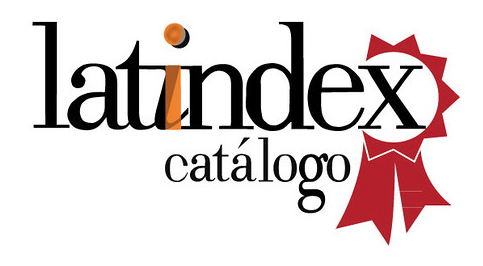A Topology of Everyday Constellations de Georges Teyssot
Texto completo:
PDFResumen
Resumen
En el libro, A topology of everyday constellations, Georges Teyssot expone los temas que va persiguiendo hace décadas, manteniendo su ya conocido registro erudito y denso. Como un flâneur intenta desentrañar la espesura compleja de las tramas de lo cotidiano para de forma desvelar la nueva condición del habitante que se ve confrontado, en los dos últimos siglos, con cambios estructurales a un ritmo anteriormente desconocido. Siguiendo caminos trazados por Charles Baudelaire, Georg Simmel, Walter Benjamin, Michel Foucault o Gilles Deleuze, entre otros, Teyssot aborda la forma como la tecnología cambia la naturaleza de la civilización, el modo en que el anonimato y la emergencia de la sociedad de masas transforman el habitar de los territorios urbanos, y como cambian también las concepciones de intimidad, privacidad, domesticidad e interioridad. En este libro presenta un retrato de las transformaciones de los habitares íntimo y urbano desde el final del siglo XVIII hasta nuestros días, persiguiendo, como un investigador forense, las pistas que podrán explicar las transformaciones en los diferentes ámbitos del habitar. Los diversos temas que Teyssot va presentando se conjugan hacia la construcción de una cartografía de las fisuras, de las transformaciones, de los lapsos y de las superposiciones sentidas por el individuo de la metrópoli en su cambiante condición urbana e íntima. Los espacios intersticiales, las líneas de sombra o las zonas indefinidas surgen como polos de atracción en las observaciones que Teyssot reúne en este libro.
Abstract
In the book A topology of everyday constellations, Georges Teyssot exposes the topics he has been pursuing for decades, maintaining his already well-known scholarly and dense register. Like a flâneur, he tries to unravel the complex thickness of the daily plot to reveal the new condition of the inhabitant who has been confronted in the last two centuries with structural changes at a previously unknown rhythm. Following paths traced by Charles Baudelaire, Georg Simmel, Walter Benjamin, Michel Foucault or Gilles Deleuze, among others, Teyssot discusses how technology changes the nature of civilization, how anonymity and the emergence of mass society transform dwelling in the urban territories, and how the conceptions of intimacy, privacy, domesticity and interiority also change. In this book he presents a portrait of the transformations of the intimate and urban habitats from the end of the eighteenth century until today, pursuing, as a forensic investigator, the clues that can explain the transformations in the different domains of dwelling. The various themes that Teyssot is presenting are combined to construct a map of the fissures, the transformations, the lapses and the overlapping felt by the individual of the metropolis in its changing urban and intimate condition. In this book, interstitial spaces, shadow lines, or indefinite zones emerge as poles of attraction in Teyssot’s observations.
Palabras clave
Referencias
AGAMBEN, Giorgio: What Is an Apparatus? and Other Essays. Stanford University Press Ed., Stanford, 2009.
BENJAMIN, Walter: Selected Writings. Ed. Marcus Bullock y Michael W. Jennings, Belknap Press Ed., Cambridge, 1996-2004.
BENJAMIN, Walter: The Arcades Project [Das Passagen-Werk]. Belknap Press of Harvard University Press Ed., Cambridge, 1999.
DELEUZE, Gilles: Difference and Repetition. University Press Ed., New York, 1994.
HIMMELB(L)AU, Coop: Architecture Is Now: Projects, (Un)buildings, Action Statements, Sketches, Commentaries, 1968–1983. Rizzoli Ed., New York, 1983.
KRACAUER, Siegfried: The Mass Ornament: Weimar Essays. Harvard University Press Ed., Cambridge, 1995.
NEUTRA, Richard: Survival through Design. Oxford University Press Ed., New York, 1954.
RYKWERT, Joseph: On Adam’s House in Paradise: The Idea of the Primitive Hut in Architectural History, Museum of Modern Art Ed., New York, 1972.
VAN DE VELDE, Henry: Récit de ma vie, vol. 2, 1900–1917: Berlin, Weimar, Paris, Brussels. Versa Ed., Brussels; Flammarion Ed., Paris, 1995.
VAN EYCK, Aldo: Collected Articles and Other Writings, 1947–1998. SUN Ed., Amsterdam, 2008.
Enlaces refback
- No hay ningún enlace refback.
Copyright (c) 2019 Autor / BY-NC-ND









